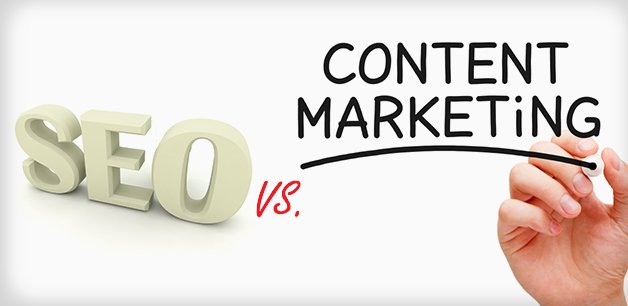Let me ask you this:
When you hear the letters SEO, what comes to your mind?
“Rankings in Google searches.”
“Crazy back-end nerdy work.”
“Links and website structure thingys that have no meaning, but incredible cost.”
Sadly, for many people SEO means all of these things, and more.
I am no fan of the term, and not just because I’m a writer, I swear. I’m a kid who loves online marketing, writing content and building a web presence for clients.
SEO as a term confuses customers and annoys people like me.
It’s not that everything to do with SEO is wrong, it’s just that SEO is only a part of a sound online marketing approach to a campaign or brand development.
SEO is a tactic to a much larger effort, and when it’s given the pole position on marketing, it runs the risk of leaving your website open to penalization.
See, there is a limit to how much of the SEO tactics you can engage in, and many SEO companies out there still play with spammy practices that can hurt businesses. We talk about that a little bit here.
But as was proven above, SEO has become more of a negative term throughout the general public, and it’s less meaningful a term among actual experts.
In fact, no SEO professional would only optimize a website for search engines.
The Truth About SEO
Search engines don’t buy products, people do. It serves no one to have websites that rank and get traffic, but lack decent leads, conversions and sales. Website front ends must be completely people focused, especially when they work in the realty sector. (We talk about this in a post from earlier this month.)
But don’t get me wrong, we NEED good SEO to market anything online, as structure and links are important parts of the internet—in order for us to know who we can trust. But SEO is most effective when it is a part of a larger effort, one that looks at the implications of
- content
- content publishing & social media engagement
- frequency & recency of publishing
- layout and structure
- audience development (leads, conversions, sales), and even
- brand retention
Optimizing for only Google and Bing could leave you in a lurch once your buyers actually find you. You have less than 3 seconds to make an impression, and if you fail to meet their expectations, you’ve lost them forever.
A few professional SEOs I know are with me on this: SEO is one part of a much larger world we call content marketing. Content marketing looks at all avenues of site structure, buyers’ journeys, optimization, content publishing, layout and social media.
Content marketers look at all possible streams of organic traffic, from search to social—we look internally at the website and externally at content as it makes its way out to the world and engages others.
There are ways to optimize both arenas so that we can best improve traffic to a site, but also improve the quality (and not just quantity) of the visitors.
But then we look at how to convert those visitors, through content and layout that meets their needs and expectations and (ultimately) shortening the buyers’ journey.
So what are some of the things content marketers looks at?
Next week, we promise to tell you. :)
If you want to learn more about Redman’s commitment to content and SEO drop us a line and speak to one of our team today!
Sign-up For FREE Updates


